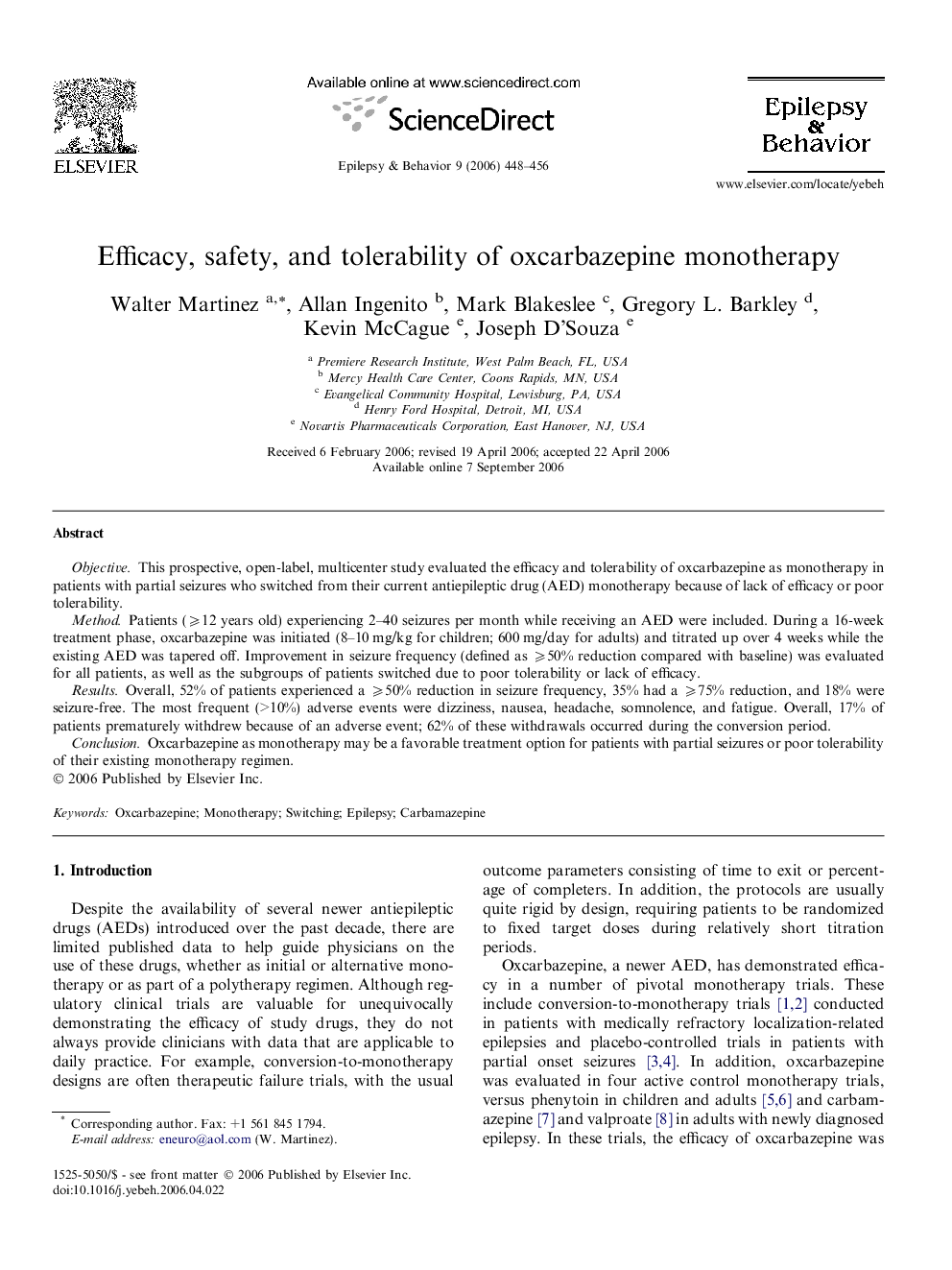| Article ID | Journal | Published Year | Pages | File Type |
|---|---|---|---|---|
| 3051621 | Epilepsy & Behavior | 2006 | 9 Pages |
ObjectiveThis prospective, open-label, multicenter study evaluated the efficacy and tolerability of oxcarbazepine as monotherapy in patients with partial seizures who switched from their current antiepileptic drug (AED) monotherapy because of lack of efficacy or poor tolerability.MethodPatients (⩾12 years old) experiencing 2–40 seizures per month while receiving an AED were included. During a 16-week treatment phase, oxcarbazepine was initiated (8–10 mg/kg for children; 600 mg/day for adults) and titrated up over 4 weeks while the existing AED was tapered off. Improvement in seizure frequency (defined as ⩾50% reduction compared with baseline) was evaluated for all patients, as well as the subgroups of patients switched due to poor tolerability or lack of efficacy.ResultsOverall, 52% of patients experienced a ⩾50% reduction in seizure frequency, 35% had a ⩾75% reduction, and 18% were seizure-free. The most frequent (>10%) adverse events were dizziness, nausea, headache, somnolence, and fatigue. Overall, 17% of patients prematurely withdrew because of an adverse event; 62% of these withdrawals occurred during the conversion period.ConclusionOxcarbazepine as monotherapy may be a favorable treatment option for patients with partial seizures or poor tolerability of their existing monotherapy regimen.
